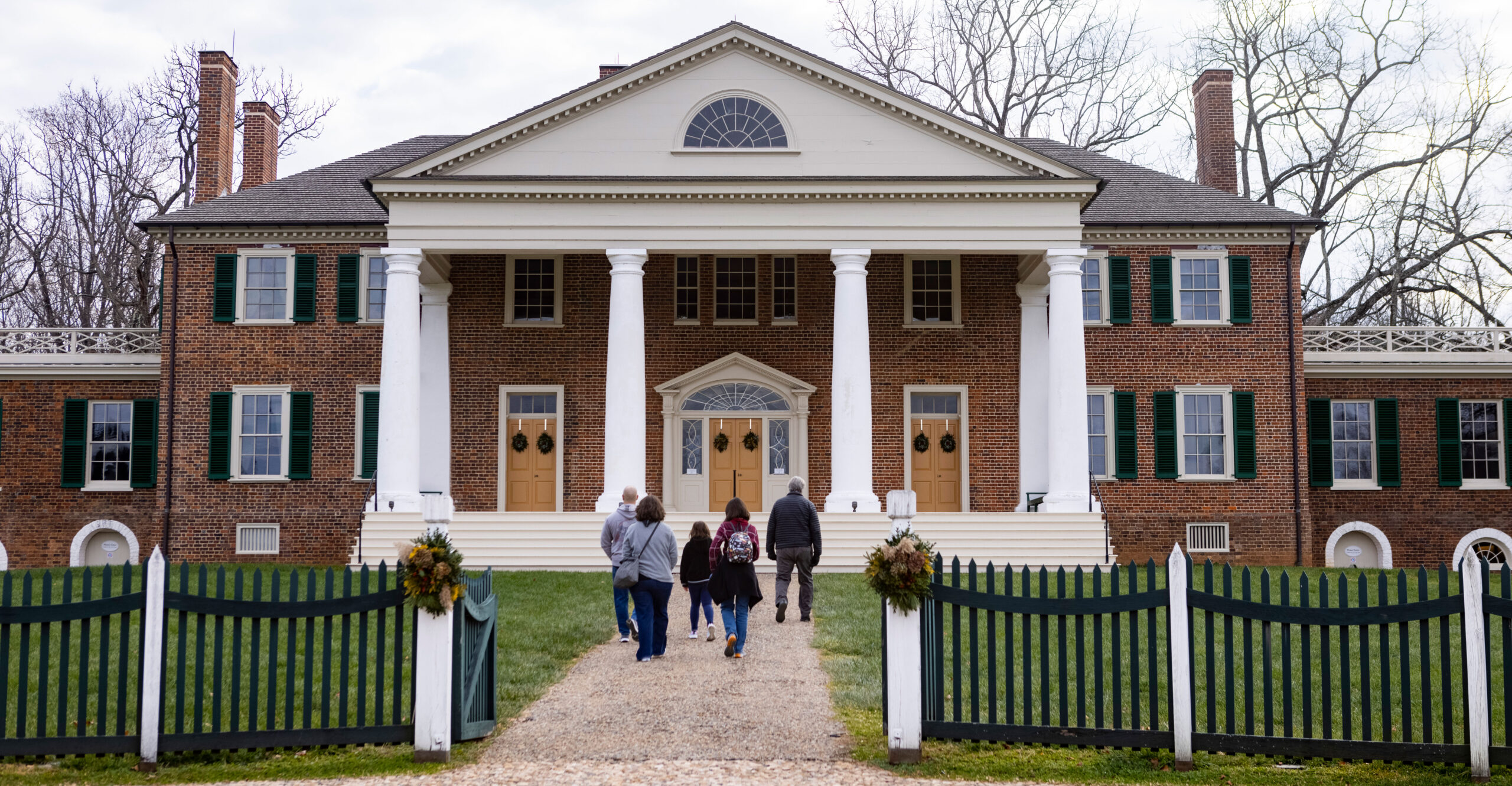Why Is Marxism—But Not Madison—Being Taught at Montpelier?
James Madison is the Father of our Constitution, and the Robert H. Smith Center for the Constitution at Madison’s Montpelier provides educational programming for teachers,... Read More The post Why Is Marxism—But Not Madison—Being Taught at Montpelier? appeared first on The Daily Signal.

James Madison is the Father of our Constitution, and the Robert H. Smith Center for the Constitution at Madison’s Montpelier provides educational programming for teachers, law enforcement officers, and others.
That seems appropriate. After all, not only did Madison—our country’s fourth president—help draft the Constitution, but he also served as a key delegate at the Constitutional Convention, authored the Bill of Rights, and urged ratification of the Constitution through his practical and philosophical arguments in The Federalist Papers.
But these accomplishments are, at best, downplayed at his historic home. Montpelier has no exhibits dedicated to Madison and his contributions.
Worse still, Montpelier is equipping educators to teach Marxist-based theories to elementary, middle, and high school students. And the programs doing this are, in part, funded by the state of Virginia.
Issues surrounding policing and prosecution could be fair game for seminars at Montpelier. The Fourth Amendment protects against “unreasonable searches and seizures.” The Fifth Amendment, among other protections, guarantees that no person shall “be deprived of life, liberty, or property without due process of law.” The Sixth Amendment guarantees the “right to a speedy and public trial” by an “impartial jury” and the ability to confront those testifying against you. And the Eighth Amendment protects against excessive bail, excessive fines, and cruel and unusual punishments.
Madison drafted all of those.
Yet next week’s “Educator Seminar: Policing and Public Safety” will instead focus on the “history of policing, civil rights, and Constitutional change in African American contexts for the purpose of providing educators with key strategies and historical tools to teach topics in black history about law enforcement, social justice, and the Constitution.”
It will “help teachers be more inspired to teach hard histories that invite students in their classrooms to imagine equitable possibilities for promoting public safety for all.” And it will explore “why community approaches to public safety surfaced to counteract police violence and discrimination within the criminal legal system leading up to today’s age of mass incarceration.”
There’s a lot to unpack in those statements, but underlying all of them is the belief that our criminal justice system is systemically racist and that, as a result, we lock up too many people—particularly too many young black men.
But that’s not true. Our criminal justice system isn’t systemically racist, and mass incarceration is a myth.
If someone commits the crime, they should do the time. And it’s a sad fact that a disproportionate number of young black men commit violent crimes in the United States and often victimize other young black men in the process.
But these aren’t the only terms that stand out. Of particular note in the description are the phrases “equitable” and “hard history.” Equity is about equality of outcomes, not opportunity. And “teaching hard history” is a mantra of the radical Southern Poverty Law Center, which often labels those it disagrees with as “hate groups.”
In fact, the SPLC’s “teaching hard history” curriculum and initiatives are not simply about discussing slavery’s role in American history. Like “The 1619 Project” and other critical race theory programs, they place slavery as the central animating force in America’s Founding. The preface of the curriculum states that “Some say slavery was our country’s original sin, but it is much more than that. Slavery is our country’s origin.”
This curriculum is also about forming students into activists. For example, it notes that those in K-2 should “examine how power is gained” and be able to “contrast equity and equality, identifying current problems where there is a need to fight for equity.”
This overlap is no coincidence. Hasan Kwame Jeffries, the host of the SPLC’s “Teaching Hard History” podcast as well as an author of the curriculum standards quoted above, also serves as the chairman of the board at Montpelier, which is the historic home’s governing body. (Currently, no Madison scholars are on the board.)
Jeffries—the brother of House Minority Leader Hakeem Jeffries, D-N.Y.—helped develop and appears in a video in Montpelier’s basement featuring encounters with police officers and protesters carrying signs that read “Stop police brutality,” “I can’t breathe,” and “Black Lives Matter.”
Per the Montpelier website, “[f]rom mass incarceration, to the achievement gap, to housing discrimination, and the vicious cycle of poverty, violence, and lack of opportunity throughout America’s inner cities, the legacies of 200 years of African American bondage are still with us.”
It’s sad that Montpelier has chosen to focus on a Marxist-motivated movement fueled by critical race theory, instead of on the many astounding achievements of the home’s former owner and the Father of our Constitution, James Madison.
It’s a disservice to the public, teachers, and students.
The post Why Is Marxism—But Not Madison—Being Taught at Montpelier? appeared first on The Daily Signal.
















:quality(85):upscale()/2025/01/08/844/n/1922398/cde2aeac677eceef03f2d1.00424146_.jpg)


